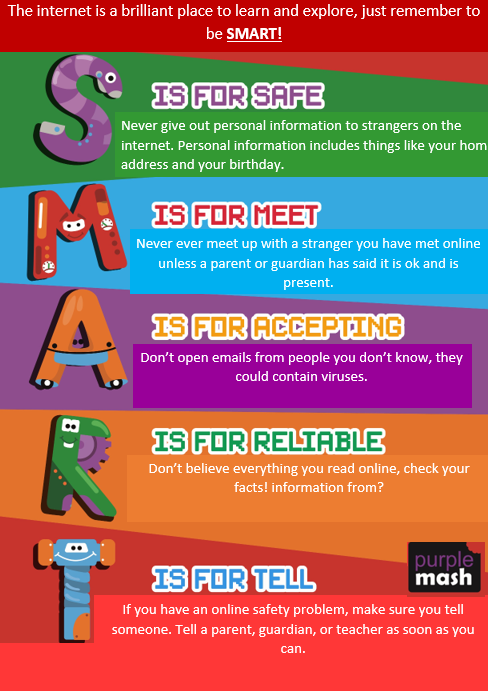E Safety
At Holt Farm Infant School, we are committed to ensuring the safety and well-being of our pupils online. As primary caregivers, your role in managing your child's interaction with digital environments is crucial. We encourage you to engage actively with your child's online activities, promote healthy digital habits, and discuss the importance of privacy and security. Together, we can create a safe digital space that empowers and educates our children.
How do we teach children to stay safe online?
We aim to ensure that all members of our school community:
- understand the risks, challenges and responsibilities associated with online activity;
- have the knowledge and skills to make safe, responsible choices online;
- know how to respond appropriately to online safety incidents;
- participate in a safe, respectful, inclusive digital environment.
Our dedicated online safety curriculum teaches children knowledge about how to stay safe online in regular 15–20 minute age appropriate sessions. These are mapped out progressively so that each year group can deliver online safety knowledge. Topics include Managing Online Information, Online Relationships, Online Bullying, Health & Wellbeing, Online Reputation, Privacy & Security, and Self‑Image & Identity.

How do we ensure children will not see inappropriate content in school?
We use filtering and monitoring systems to block harmful or inappropriate content, ensuring pupils can access the internet safely while at school. The filtering and monitoring system alerts the school if someone tries to search for content that is concerning. This is then addressed by the DSL and DDSL team as part of our safeguarding procedures. Websites are also filtered to prevent access to potentially harmful content.
How do we support parents and carers to keep children safe online?
We know parents play a key role in keeping children safe online, so we share advice, resources, and training to help you support your child’s safe internet use at home. Look out for regular communication about online on our weekly newsletters. A sample of some of these shared resources can be seen below.
Support your child to recognise harmful content and report it using the CEOP Education resources at home with your child.



